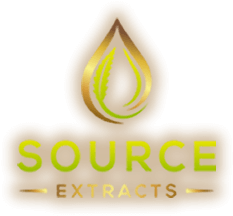Questions about the health benefits of CBD continue to be debated. Depending on the source of the information,you will hear many positions. Currently, the United States Federal Drug Administration is working to study the effects in general of CBD in a number of products and applications.
Namely, during the FDA review of Epidiolex, the prescription drug containing CBD, it was determined that the drug’s benefits outweighed the risks for the particular population for which it was intended. But those risks, including potential for liver injury and harmful interactions with certain drugs, are currently being evaluated.
Alternatively, according to a 2018 report from the World Health Organization, the WHO Expert Committee on Drug Dependence determined that CBD posed no public health risks or potential for abuse.
“CBD appears to have little effect on conditioned place preference or intracranial self-stimulation.” In an animal drug discrimination model CBD failed to substitute for THC. In humans, CBD exhibits no effects indicative of any abuse or dependence potential.”
The findings did echo a concern of the FDA regarding the effect CBD may have on the body’s metabolism of prescribed drugs.
“CBD is generally well tolerated with a good safety profile. Reported adverse effects may be as a result of drug-drug interactions between CBD and patients’ existing medications.”
However, the report was quick to note that their findings determined that CBD has “been demonstrated as an effective treatment for epilepsy” in adults, children, and even animals, and that there’s “preliminary evidence” that CBD could be useful in treating Alzheimer’s disease, cancer, psychosis, Parkinson’s disease, and other serious conditions.
The studies cited by the WHO Expert Committee on Drug Dependence, they said, have shifted the national controls of many countries as they move to accommodate CBD as a medicinal product.
But the U.S., the report noted, has not. As a cannabis component, CBD remains classified as a Schedule I controlled substance, meaning it has a “high potential for abuse,” no currently accepted medical use in treatment in the United States, and has a lack of accepted safety for their use under medical supervision, in the federal government’s view.
CBD History
Cannabidiol (CBD), a major cannabinoid found in cannabis, was first isolated and synthesized from the cannabis plant in 1965. More recently, after the discovery of the human body’s endocannabinoid system in the early 1990s, CBD has been the center of medical research for diseases like epilepsy.
Since then, scientists, pharmaceutical firms, and government officials have been analyzing these interactions, studying the effects and comparing CBD to cannabis’ other more well-known cannabinoid, delta-9 tetrahydrocannabinol (THC).
However, because cannabis remains a Schedule I drug today, investigators seeking to conduct research on cannabis or cannabinoids are often required to navigate a series of review processes with the National Institute on Drug Abuse (NIDA), the U.S. Food and Drug Administration (FDA), the U.S. Drug Enforcement Administration (DEA), and other state and federal bodies and medical boards.
In some states, researchers must also receive a controlled substance certificate from a state board of medical examiners or a controlled substance registration from a department of the state government, as well as submit a research protocol to the DEA that includes details regarding the security provisions for storing and dispensing the substance. All of this seems overkill, when the intended to is to identify and document the positive health benefits of CBD.
These barriers, plus difficulties gaining access to the quantity, quality, and type of cannabis products prior to 2016, continue to affect the advancement of cannabis and cannabinoid research.
Longstanding concerns
The main concern of both the FDA and WHO, however different their op, seems to be the unmoderated use of CBD products.
Recently the FDA has included CBD products in its sweeping regulation of dietary supplements and their marketing claims. It has said it’s forming a “high-level internal agency working group” to explore ways for dietary supplements and foods containing CBD to be lawfully marketed.
For many CBD users in the U.S., the substance’s mostly unsanctioned and illegal state creates problems, especially as a wave of online (mostly hemp) and store-bought CBD oils and extracts have allowed patients to take the treatment process–and the risks involved in buying unregulated medicine–into their own hands and homes.
While CBD itself is safe and found to be helpful for many users, industry experts have warned that not all cannabis extracts are created equally, purely, or with the same methods of extraction. These statements resonate with Source extracts specifically in regards to safe and transparent CBD processing methods.
Peter Grinspoon, a primary care physician at Massachusetts General Hospital, instructor at Harvard Medical School and board member of the advocacy group Doctors for Cannabis Regulation, told AARP in a recent article: “I’m sort of glad the FDA is going after these outrageous claims.… CBD is a pretty nontoxic substance, so people will have a hard time harming themselves from it. But at the same time, if they use it to forgo other treatments, such as chemotherapy, that’s obviously very harmful.”

